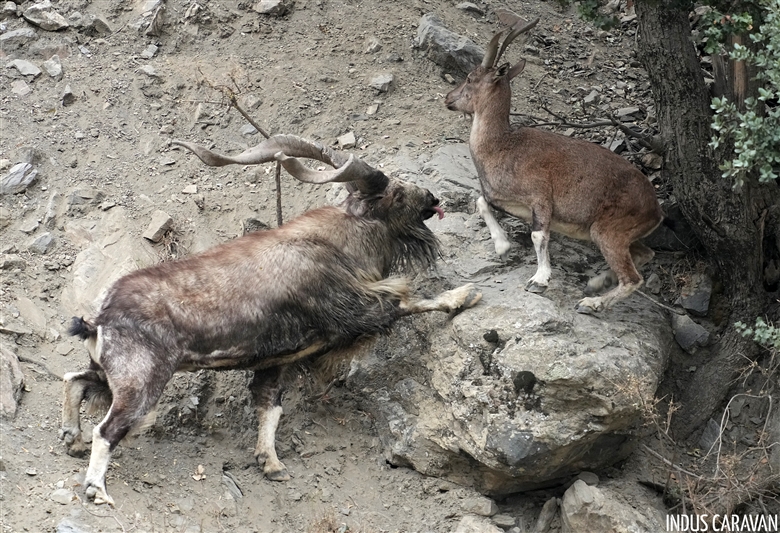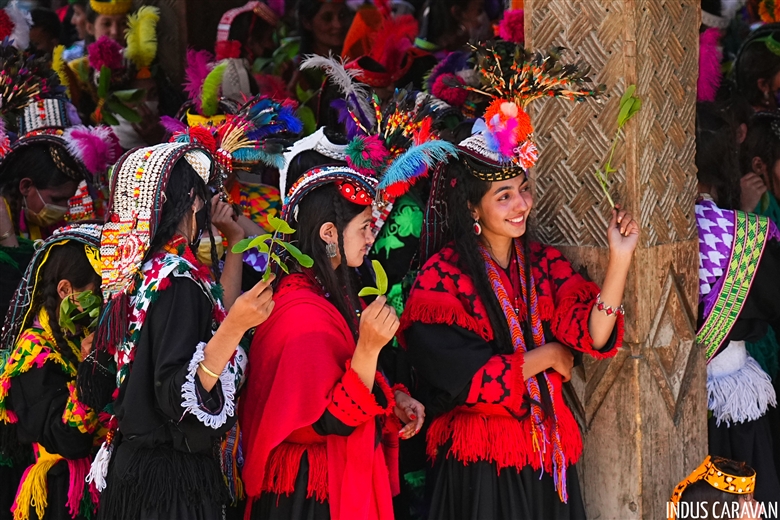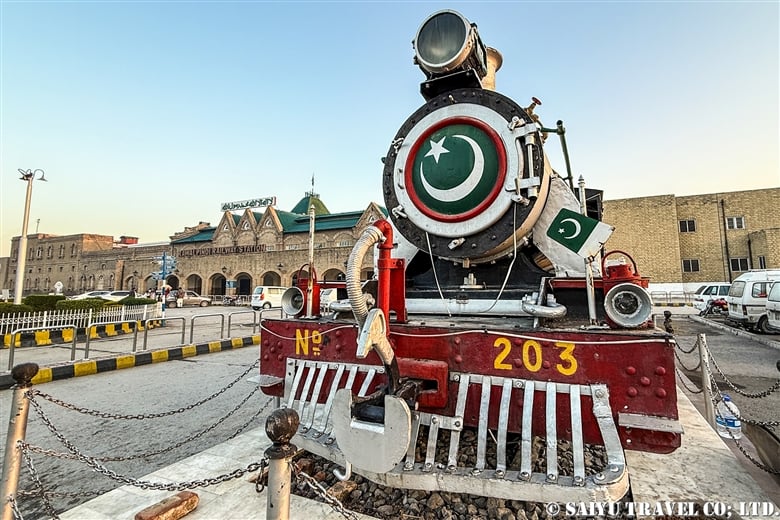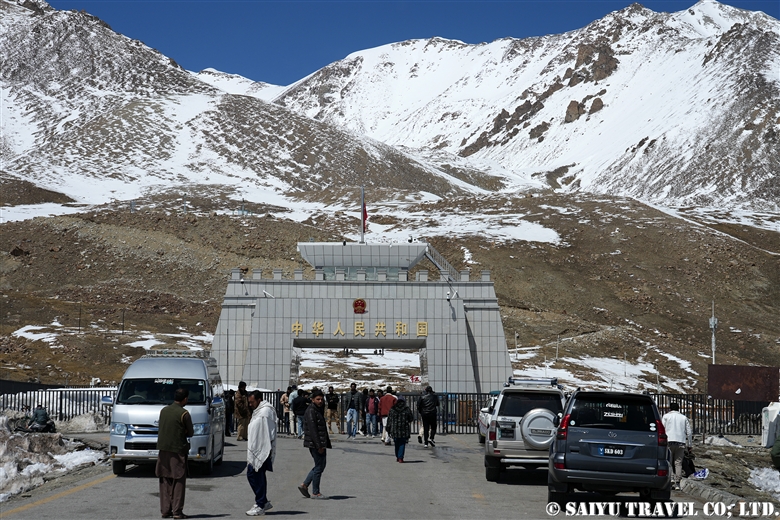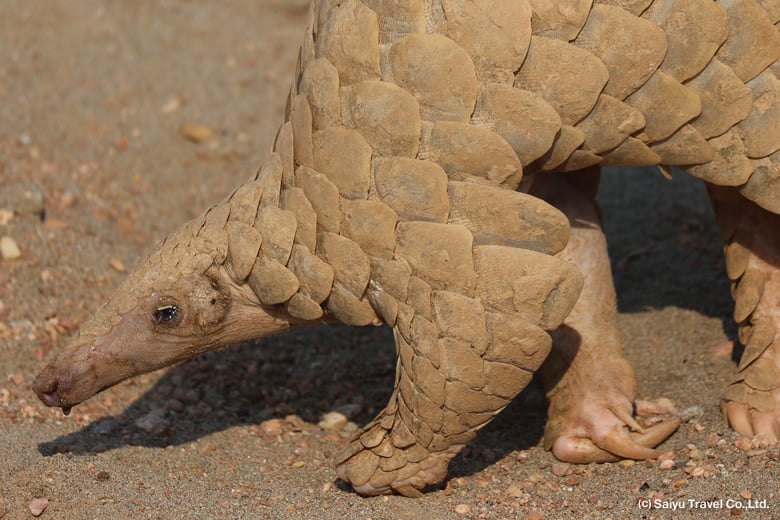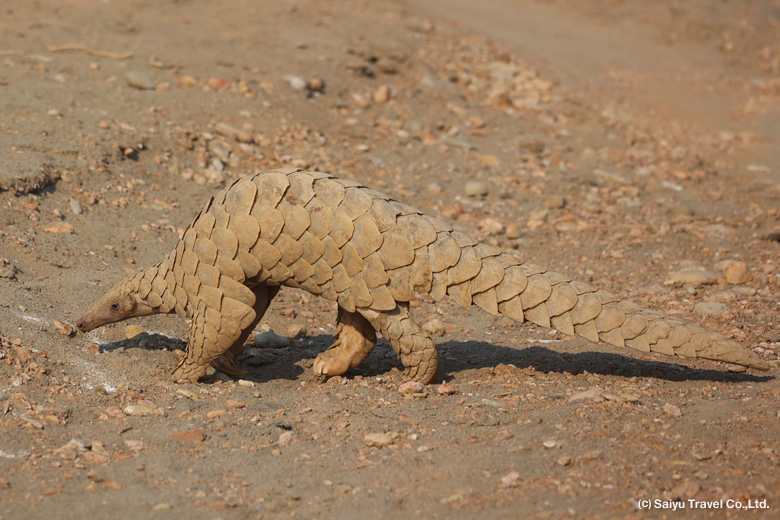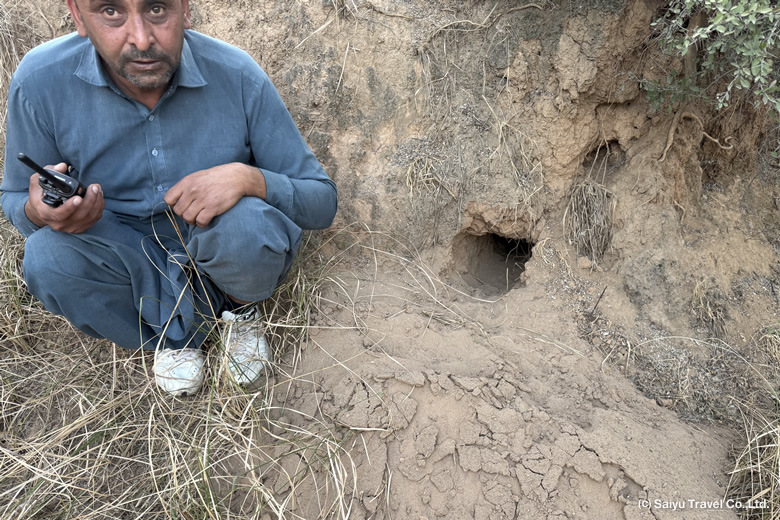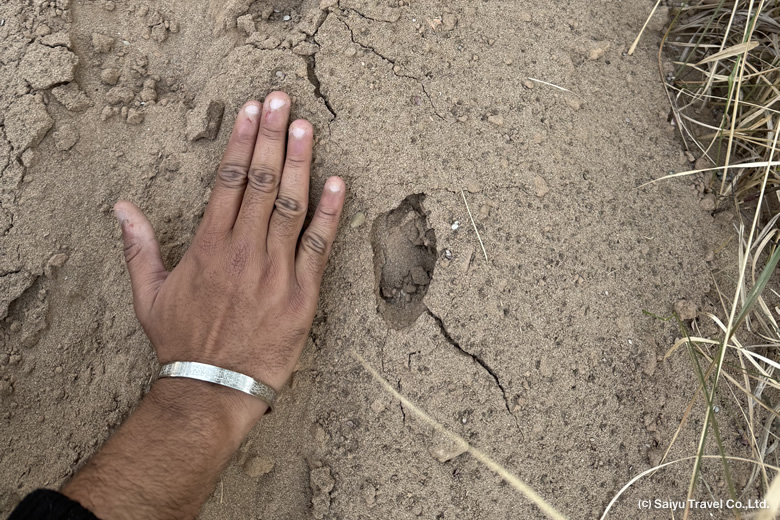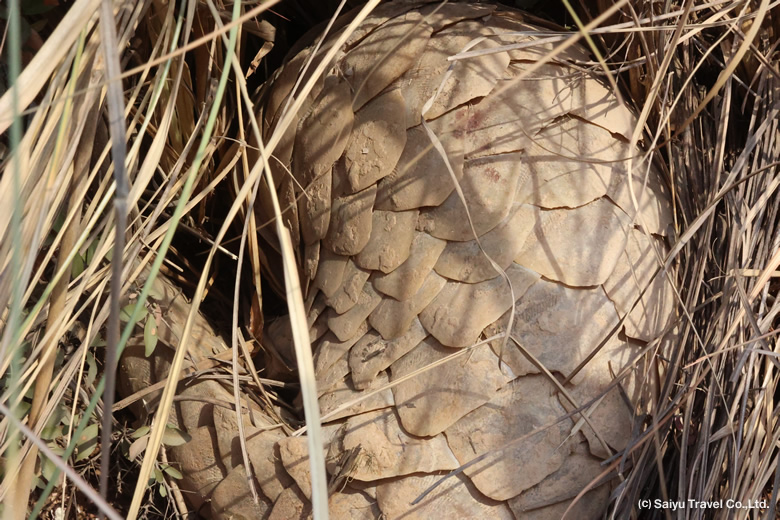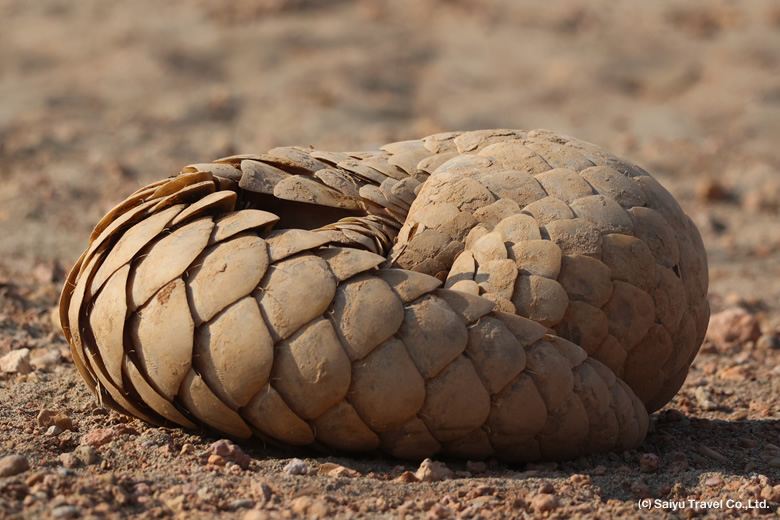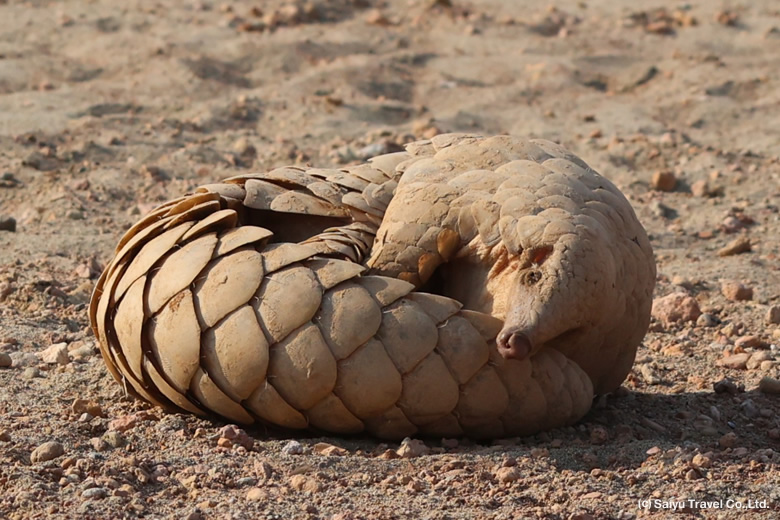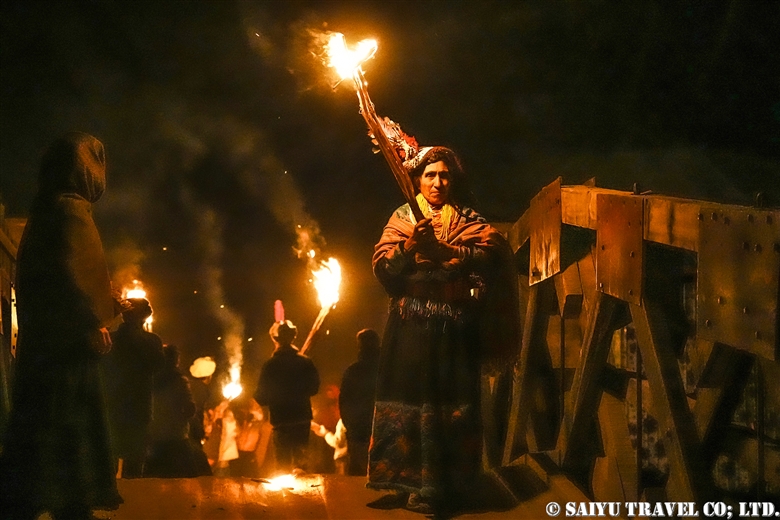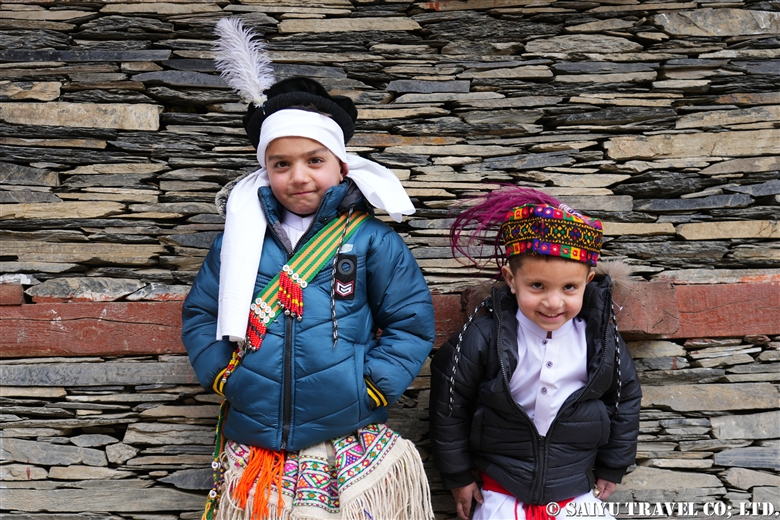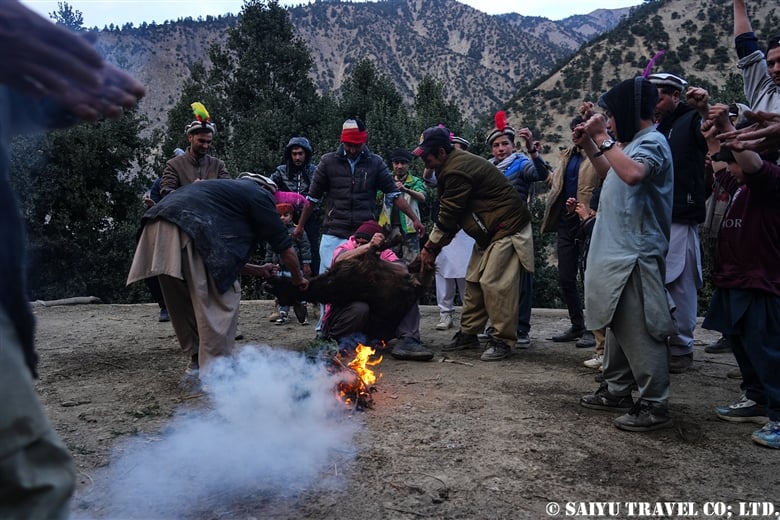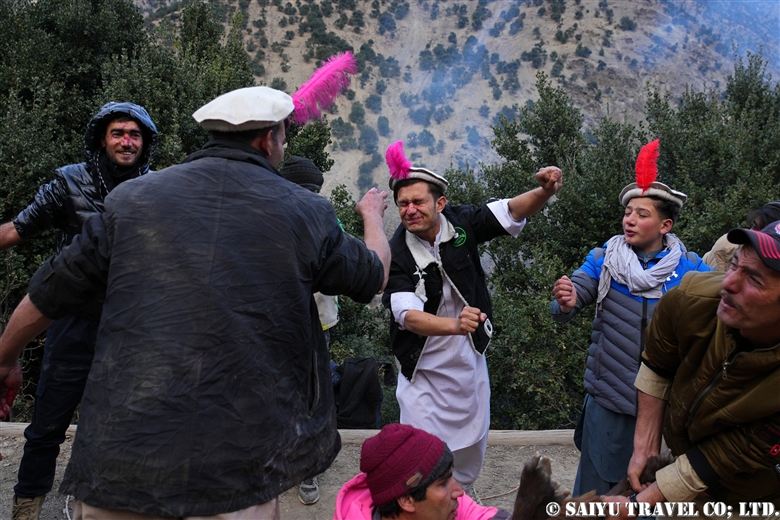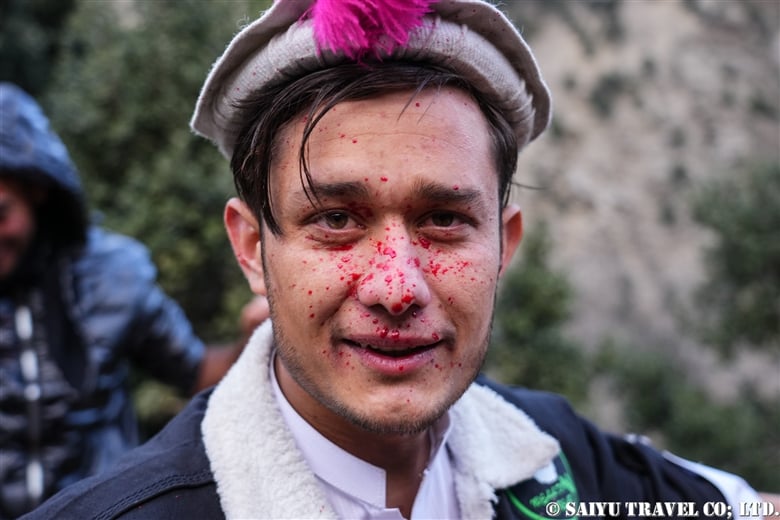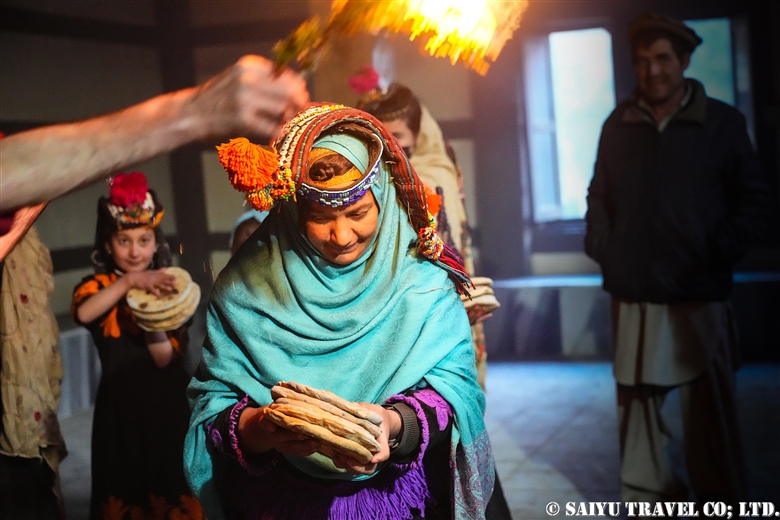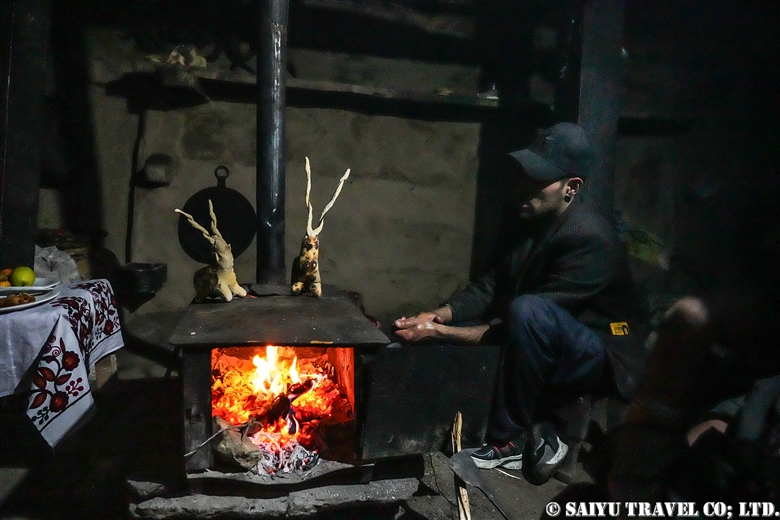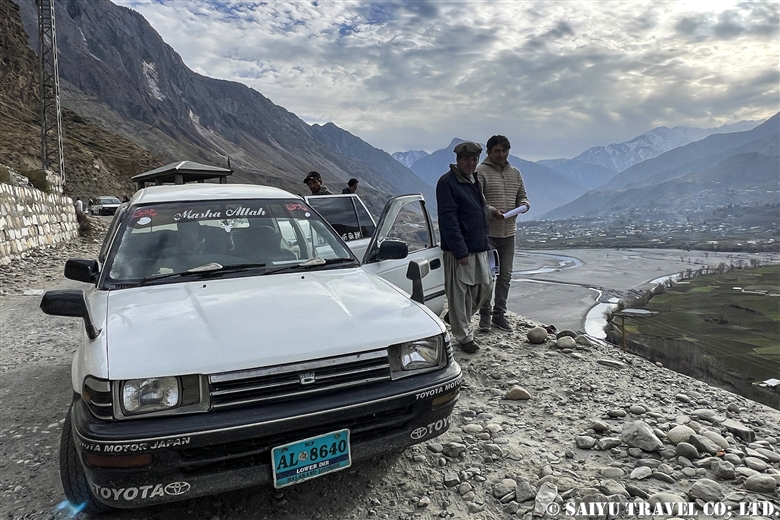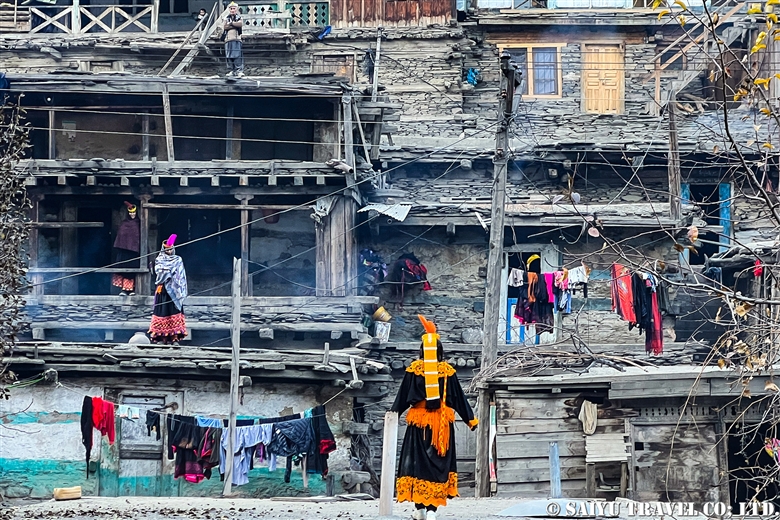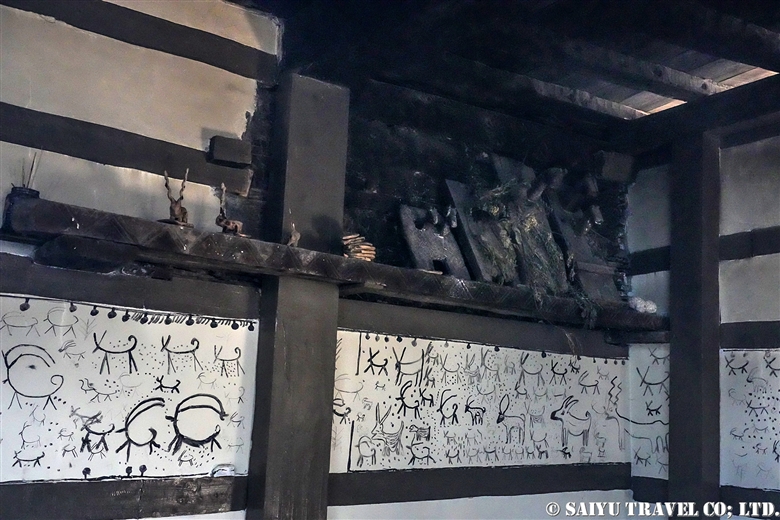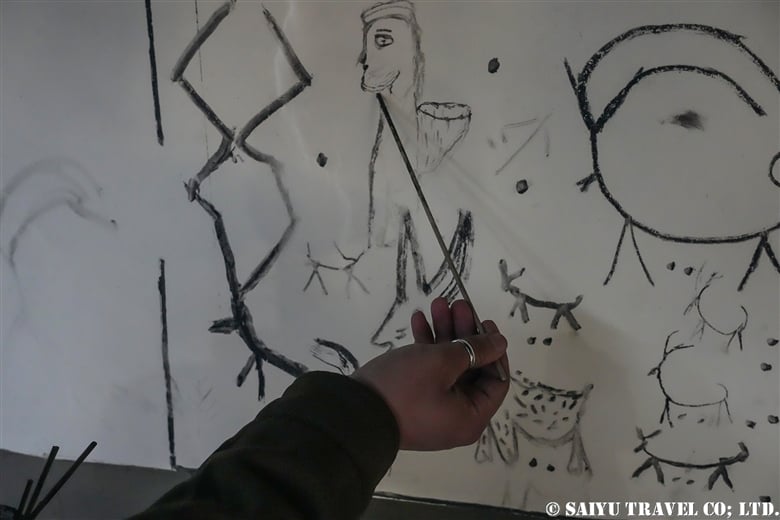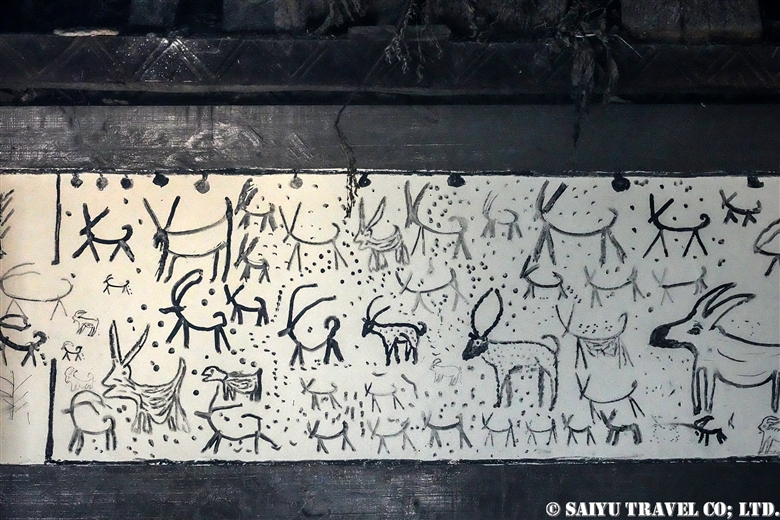
Here is a report on the Kashmir Markhor I observed during the breeding season. Last time, they were still clashing horns to determine their ‘rank,’ but this time, the hierarchy was already settled. I was able to observe the ‘lovey-dovey’ pairs in full swing.
Kashmir Markhor
The Markhor is one of the world’s largest species of wild goats, inhabiting the rugged mountain ranges spanning Central and South Asia. While its name means ‘snake eater’ in Persian, it is actually a herbivore. Its most striking feature is the magnificent spiral horns found on the males; I was absolutely stunned when I first saw them. Currently, three subspecies are said to live in Pakistan. The ones found here at the foot of the Hindu Kush mountains are known as Kashmir Markhor, characterized by their wide-flaring horns that curve in a graceful, gentle spiral.
↓↓ Kashmir Markhor in rut
There are a few reasons why the tongue stays out. One is the state of excitement unique to the rutting season, and the other is part of the Flehmen response. By curling back the upper lip, the Markhor exposes the ‘Jacobson’s organ’ to intake pheromones. Sticking the tongue out is thought to help sense chemical signals more directly and regulate airflow to send scents to the organ. This is how males check if a female is in heat. Nature is truly amazing!
↓↓A Kashmir Markhor exhibiting the Flehmen response(10 seconds clip)





On a side note, I used a KOWA spotting scope with a smartphone adapter this time, and it worked brilliantly! I highly recommend it because everyone can view the screen together. The locals in Pakistan were actually quite envious of the setup!
So far, I’ve successfully observed two of Pakistan’s three Markhor subspecies: the Kashmir Markhor and the Astore Markhor. However, the Suleiman Markhor remains a major challenge, and I haven’t even been able to visit its habitat yet. If you have a moment, search for images of the ‘Suleiman Markhor’—its horns are absolutely mind-blowing! I hope to fulfill this dream one day.
Image & Text : Mariko SAWADA
Observation : Dec 2025, Chitral, KPK
*Contact us, Indus Caravan for more information or to make arrangements for Wildlife tour in Pakistan.
*Please follow us on Youtube, Instagram & Facebook
Category : = Video Clip KPK > ◆ Video Breathtaking Views of Pakistan > ◆Khyber Pakhtunkhwa > - Markhor > - Chitral > ◇ Wildlife of PakistanTag : Indus Caravan , Travel Pakistan , Kashmir Markhor , Markhor , Pakistan tour operator , Pakistan Blog , Travel Pakistan Blog , Wildlife Photography , Wildlife of Pakistan , Wildlife Tour operator in Pakistan , Pakistan Travel Guide






